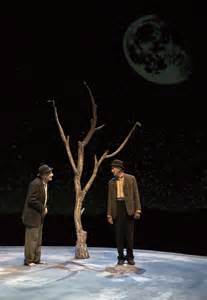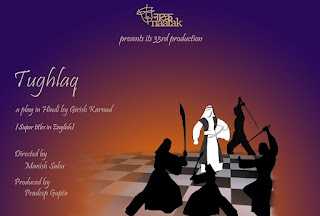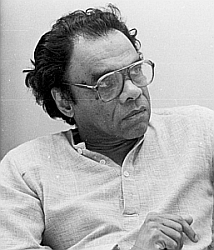Waiting for Godot Blog Task
This Blog is a part of my academic activity, Task given by Dr. Dilip Barad on the Play "Waiting for Godot"
Click here for the link of the task
My interpretations of the points are as follow.
1) The tree is the only important ‘thing’ in the setting. What is the importance of tree in both acts? Why does Beckett grow a few leaves in Act II on the barren tree -The tree has four or five leaves - ?
Ans: This play marks the profound influence of World war 2. so setting is full of broken images. But 'Tree' is only important thing in the setting. It describes the Nature and Universe. It remains indifferent or unaffected from the actions and deeds of human beings. Estragon and vladimir are constantly waiting for Godot. They have done useless things while waiting. But it changes nothing in Universe. The cycle of Nature goes on without caring for Human deeds.
2) The director feels the setting with some debris. Can you read any meaning in the contours of debris in the setting of the play?
Ans: We found setting with scattered fragments, something wrecked or destroyed. After two world wars people's life became miserable. They find nothingness in the world. It inspires many literary writer to portray such images in artistic expression. Buckett was one of them. Setting reflects the influence of World war 2.
3) The play begins with the dialogue “Nothing to be done”. How does the theme of ‘nothingness’ recurs in the play?
Ans: " Nothing to be done" reflects the Existentialism. This theory shows that life is meaningless, whatever you do it has no ultimate meaning. This play starts with this idea of nothingness. Vladimir and Estragon waiting Godot without knowing that he will come or not, is he exist or not, who is he?. Their incoherent babblings, changing of hats, unclear theme these all shows the Nothingness of the play.
4) Do you agree: “The play (Waiting for Godot), we agreed, was a positive play, not negative, not pessimistic. As I saw it, with my blood and skin and eyes, the philosophy is: 'No matter what— atom bombs, hydrogen bombs, anything—life goes on. You can kill yourself, but you can't kill life." (E.G. Marshal who played Vladimir in original Broadway production 1950s)?
Ans: The play is completely optimistic. The dialogues between Vladimir and Estragon, Lucky and Pozzo, messenger the boy reflect the deep philosophy of life. As Pozzo exclaims " One day is not enough for, one day like any other day he went dumb, one day i went blind, one day we will go deaf, one day we were born, one day we"ll die, the same day, the same second........ "
Hindu philosophy says that Nothing can be meaningless. you will gain the fruits of your deeds. And if life is meaningless yet we are go on living. So many people are connected with us but if we kill ourselves then also life will goes on as it is for other people. We are almost on the verge of war with other country but yet we are living. Every time we face one or another fear, but after all we live happily.
5) How are the props like hat and boots used in the play? What is the symbolical significance of these props?
Ans: Estragon is portrayed as busy with boots in the opening scene. It shows the material aspects of Estragon. He claims to have been a poet, he forgets everything and he is volatile, always hungry and eats the carrots. Whereas hat is situated with Vladimir. it demonstrates that he is the person who thinks, who is aware about the Godot and he is persistent. They exchange their hats it shows the nothingness of the action and also arouse the humor.
6) Do you think that the obedience of Lucky is extremely irritating and nauseatic? Even when the master Pozzo is blind, he obediently hands the whip in his hand. Do you think that such a capacity of slavishness is unbelievable?
Ans: Pozzo and Lucky can sustain spectator's attention because it shows the universal desire of mastery. Every human wants to be like pozzo, the master. Which Nietzsche called "Ressentiment". Plcan ay shows the culture of mastery of contemporary era. Even if Pozzo was blind, Lucky obediently hands the whip in his hand. it shows the slavish mindset of the people. Even if they are free they can not feel liberty after several years of slavery.So the behavior of lucky is not a newer one.
Ans: According to me the Godot is goal. Because for ambitious person Godot can be the goal. Because we live for our goal to be fulfilled not for the God or also we are not waiting for the death.
8) Do you think that plays like this can better be ‘read’ than ‘viewed’ as it requires a lot of thinking on the part of readers, while viewing, the torrent of dialogues does not give ample time and space to ‘think’? Or is it that the audio-visuals help in better understanding of the play?
Ans: According to me the reading and viewing both can be beneficial and required of the play. Because if you only watch the movie then it can be bore. Because it has the continuous dialogues and less action. For the understanding of the deeper philosophy one has to read the play. only reading also makes you boring because you will not be able to imagine vladimir and Estragon and their useless actions. We have done both the things in the class which enriched our understanding of the play.









ReplyDeleteReally useful one, compact yet packed with important points.Thank You very much for the effort to make the hard one looks so simple. Further, you can access this site to read "Waiting for Godot" as a Play Belonging to the Theater of the Absurd